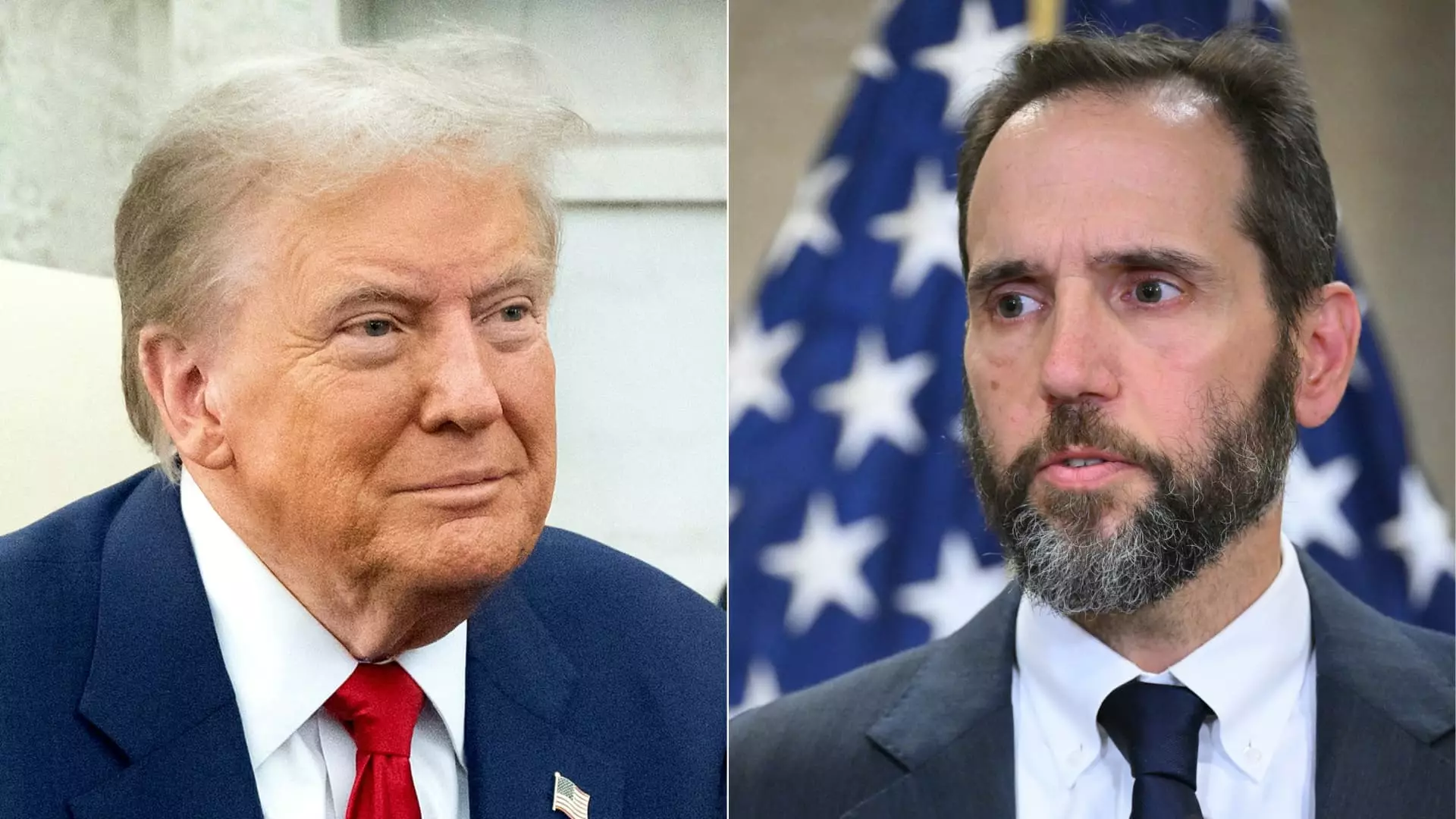In the increasingly polarized landscape of American politics, the investigation into former special counsel Jack Smith exemplifies how federal agencies are becoming pawns in a larger political game rather than neutral arbiters of justice. The Office of Special Counsel, an entity traditionally tasked with maintaining integrity within the federal workforce, is now embroiled in accusations that threaten its impartiality. The very fact that Smith, who was appointed to oversee sensitive investigations into a presidential candidate, is subject to scrutiny raises alarming questions about the intertwining of politics and justice. Rather than serving as an unbiased body, its actions lean toward advancing partisan narratives, further eroding public trust in institutions meant to be above the fray.
Questionable Grounds for Investigation
The charges levied against Smith—alleged violations of the Hatch Act—appear more as politically motivated allegations than substantiated misconduct. The Hatch Act is often invoked as a remote threat to political balance; however, the application in this context seems selective and inconsistent. Historically, the OSC has been reluctant to escalate violations to the Department of Justice, yet here, it is being encouraged to do so in a manner that appears to serve partisan interests. The absence of concrete evidence, coupled with the lack of criminal prosecution authority within the OSC, suggests this investigation is more about political spectacle than genuine oversight. It raises the critical question of whether these investigations are protecting democracy or weaponizing federal agencies to silence political opponents.
The Dangerous Precedent of Politicized Justice
The timing and motives surrounding the investigation into Jack Smith underscore a troubling trend in American politics: the weaponization of law enforcement to target opposition figures. The push by prominent Republicans, like Senator Tom Cotton, to frame Smith as interfering in the upcoming election demonstrates how accusations are being used to undermine the integrity of legal processes. Smith’s decision to step down before trial and the lack of prior criminal activity associated with similar Hatch Act allegations shows that these actions may be more retaliatory than investigatory. This pattern not only erodes the veneer of fairness but also sets a perilous precedent where political loyalty influences judicial and prosecutorial decisions, threatening the very foundations of democratic accountability.
The Broader Implications for Democracy
At its core, the ongoing saga reflects a deep schism within the American political system—one where the rule of law is increasingly skewed by partisan loyalty. The selective enforcement of federal oversight, combined with increased politicization of investigations, risks marginalizing essential democratic checks and balances. Instead of fostering transparency and fairness, these tactics deepen mistrust in government agencies that are supposed to uphold justice without bias. The manipulation of legal mechanisms to target political figures who challenge the status quo threatens to diminish confidence in both the judiciary and the electoral process itself. If federal oversight begins to serve partisan interests rather than constitutional principles, the fabric of American democracy becomes perilously frayed.


Leave a Reply